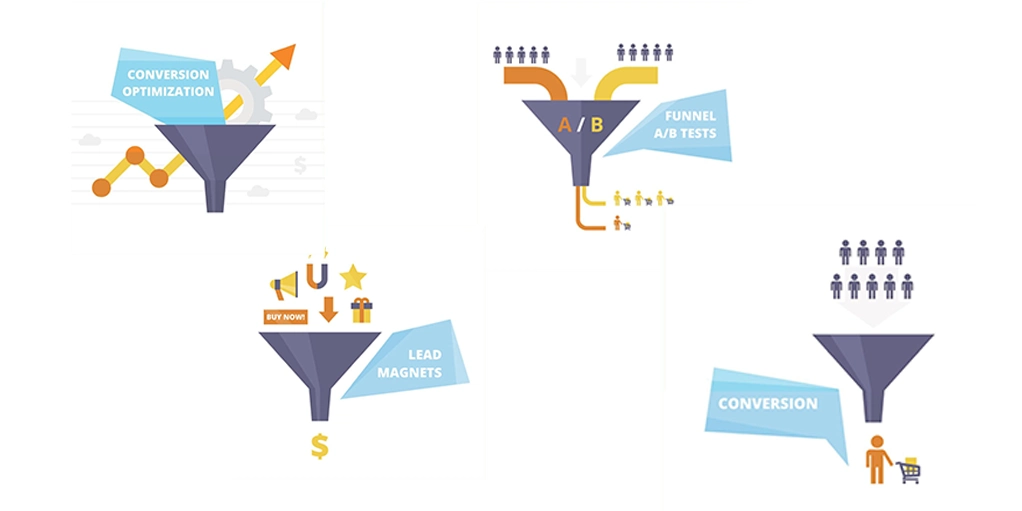Introduction
It’s no longer sufficient for brands to measure success solely by the number of clicks on their ads. Instead, the emphasis is on creating effective ad funnels that guide users seamlessly from initial interaction to a valuable conversion. In this blog post, we will delve into the strategies for optimizing social media ad funnels, emphasizing the importance of conversions over clicks.
Understanding the Funnel
A social media ad funnel is a structured path that guides users through various stages, starting from awareness and moving toward conversion. The traditional stages include awareness, interest, consideration, intent, and finally, conversion. Each stage plays a crucial role in moving the user closer to becoming a customer.
- Creating Awareness: The primary objective of the Top Funnel is to establish and enhance recognition and awareness of the brand. Social media platforms offer a plethora of targeting options to reach a specific audience. Use engaging visuals and compelling copy to capture attention. However, it’s essential to measure success not only in terms of reach and impressions but also in terms of the impact on brand recall.
- Generating Interest: Once awareness is established, focus on generating interest. Provide valuable content, such as blog posts, videos, or infographics, that pique the interest of your target audience. Encourage engagement through likes, shares, and comments. This stage is about nurturing a connection with the audience.
- Building Consideration: As users move down the funnel, the emphasis shifts to building consideration. Highlight the unique selling points of your product or service. Testimonials, case studies, and product demonstrations become valuable tools at this stage. Social proof plays a crucial role in influencing user decisions.
- Encouraging Intent: At the intent stage, users are on the verge of converting. Use targeted ads to encourage specific actions, such as signing up for a newsletter, downloading a guide, or participating in a webinar. The key is to make the next steps clear and enticing.
- Optimizing for Conversion: The ultimate goal is to optimize for conversions. Whether it’s making a purchase, filling out a form, or any other desired action, the conversion stage is the culmination of a well-optimized social media ad funnel. Streamline the conversion process, minimize friction, and ensure a seamless user experience.
Key Strategies for Optimization
- Data-Driven Decision Making: Utilize data and analytics to understand user behavior at each stage. Identify bottlenecks and areas for improvement, allowing for data-driven adjustments to the funnel.
- A/B Testing: Experiment with different elements in your ads, including visuals, copy, and calls to action. A/B testing helps identify what resonates best with your audience and improves overall conversion rates.
- Retargeting: Launch retargeting campaigns to reconnect with people who have shown interest but did not complete a desired action. Personalize the messaging based on their previous interactions to encourage them to take the next step.
- Mobile Optimization: With the majority of social media users accessing platforms via mobile devices, ensure that your ad funnel is optimized for mobile. A seamless mobile experience is crucial for higher conversion rates.
Conclusion
In conclusion, the shift from clicks to conversions on social media necessitates a strategic and holistic approach to ad funnels. By understanding the user journey and implementing optimization strategies at each stage, brands can not only increase their click-through rates but, more importantly, drive meaningful conversions. Keep refining and adapting your ad funnels based on user feedback and evolving trends to stay ahead in the competitive world of social media marketing.
To know more about Social Media Marketing, Please visit https://paypercampaign.com/social-media-marketing/





